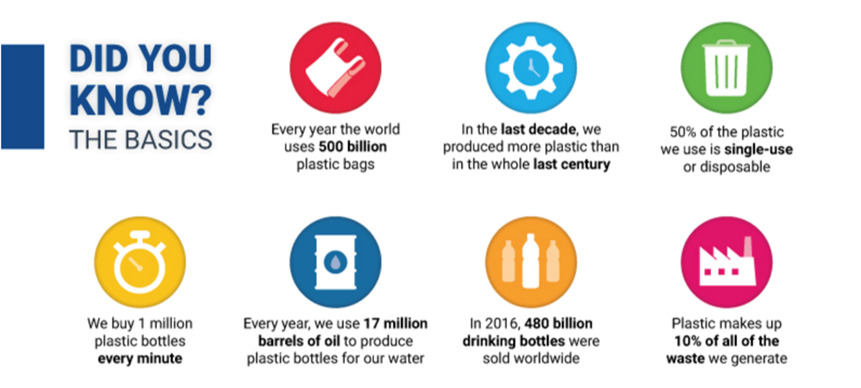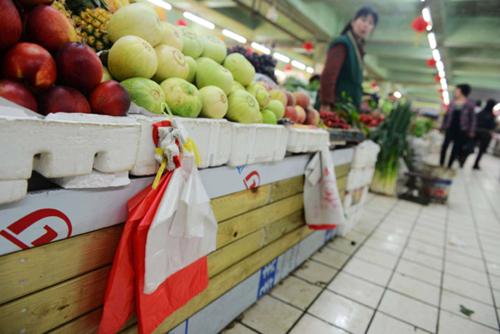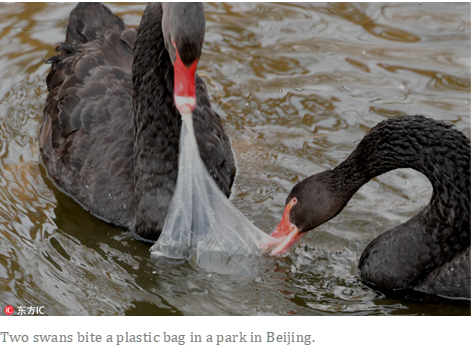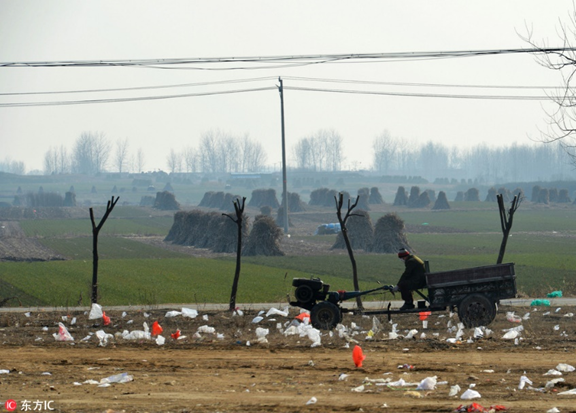Causes:
Made from polythene, plastic bags in landfill sites are supposed to last between a conservative 200 years to an estimated 1 million years.
Over 2 billion bags are believed to be dumped every day in China, where the non-degradable bags are clogging up land, drains and rivers, and are harming wildlife. China is suffering from "white pollution," a term coined to describe the unsightly tumbleweed of plastic bags blowing around on our streets.

With growing economic prosperity in Chinese society over the last two decades, environment-friendly baskets and cloth bags have gradually given way to single-use plastic food containers and plastic shopping bags. It would still only equal a tiny portion of the 75 million metric tons of plastic that was consumed in China in 2016.

Although related government agencies at all levels have launched campaigns to curb "white pollution" since the mid-1990s, no substantial progress has been made in solving the bag problem. One major reason for the failure is that policy-makers are neglecting the complex nature of consumption-related environmental problems in China, where most resources are allocated to dealing with production-related pollution. Environmental administrators put too much emphasis on administrative power and regulations, but have showed little respect for market forces and consumers. So it is not surprising at all that various urgent measures, such as banning super-thin plastic bags and encouraging the use of baskets and paper bags among shoppers, have been short-lived.


Consequences: It has to be admitted that the emergence of this "white pollution" results from a combination of factors, including China's fast industrialization, rising living standards of Chinese people, and drastic changes in consumption patterns.

Methods:
Unless a multi-faceted and long-term strategy is introduced, any single campaign aimed at quick success is unlikely to succeed.
Guo Geng, a political adviser in Beijing, has proposed the introduction of a "bag tax" in a bid to help cut demand for plastic bags and raise more money to tackle pollution caused by the bags. Media reports claim that the Ministry of Finance is conducting a feasibility study for introducing such a tax. While some consumers may shun the use of plastic bags due to the tax, others may still prefer convenience to the little price they have to pay.
So the production and use of degradable bags should be encouraged as a substitute for non-degradable plastic bags to reduce environmental pollution. This will offer a way out for both manufacturers of plastic bags and consumers.
Of course, promoting people's environmental consciousness should, as always, be given importance. The more they know about how severe "white pollution" is, the more voluntarily they will help address the problem.
Marketplace ban
Ten years ago, to fight worsening pollution and energy waste caused by the rampant use of plastic bags, the State Council, China's Cabinet, banned marketplaces, including supermarkets, food markets and shopping centers, from providing customers with free bags, and outlawed the use of bags less than 0.025 millimeters thick.
The ban, which took effect on June 1, 2008, has curbed the use of plastic bags in marketplaces.
 Plastic bags are littered at a village in Langyang, Shandong province. [Photo/IC]
Plastic bags are littered at a village in Langyang, Shandong province. [Photo/IC]